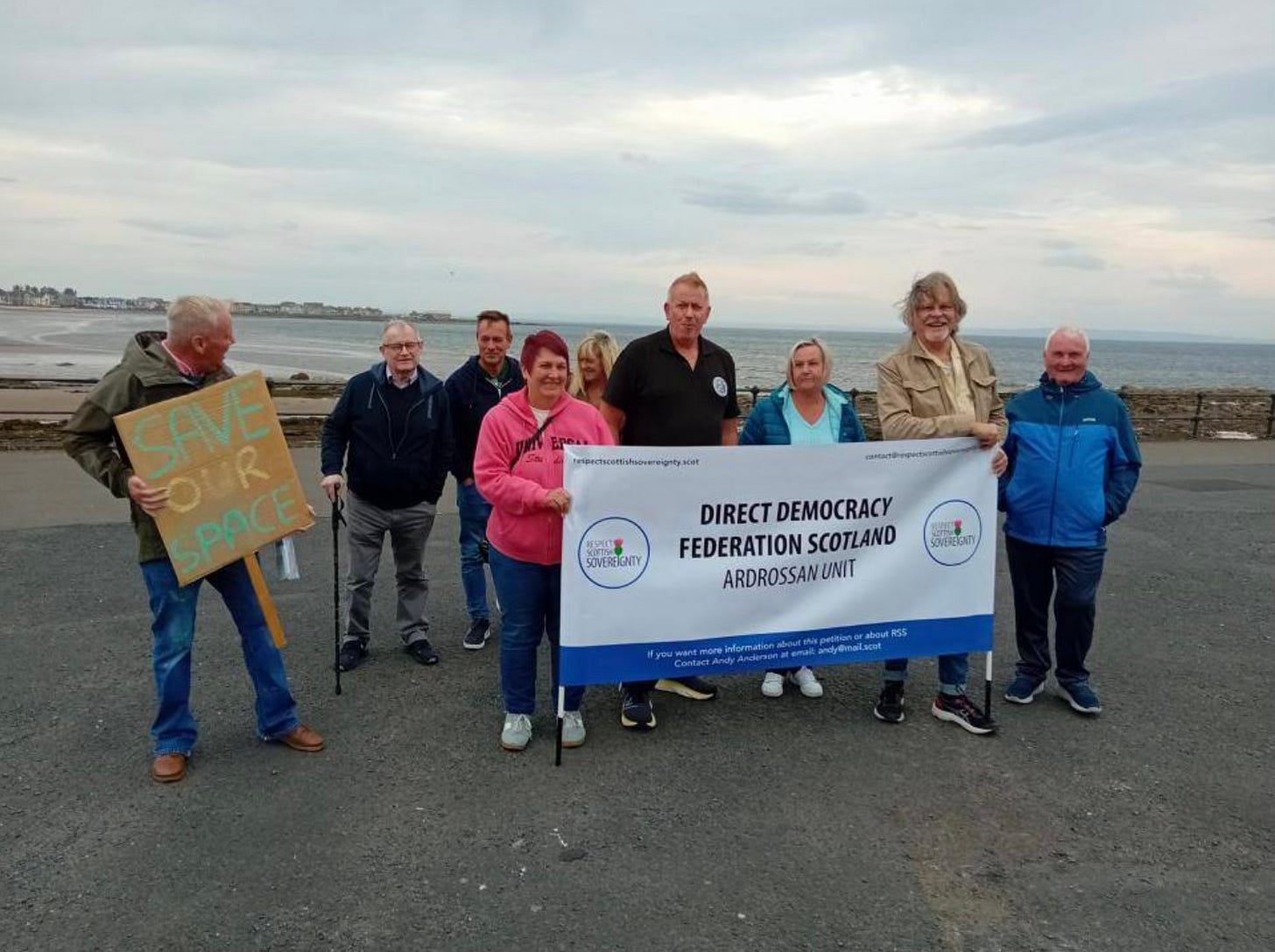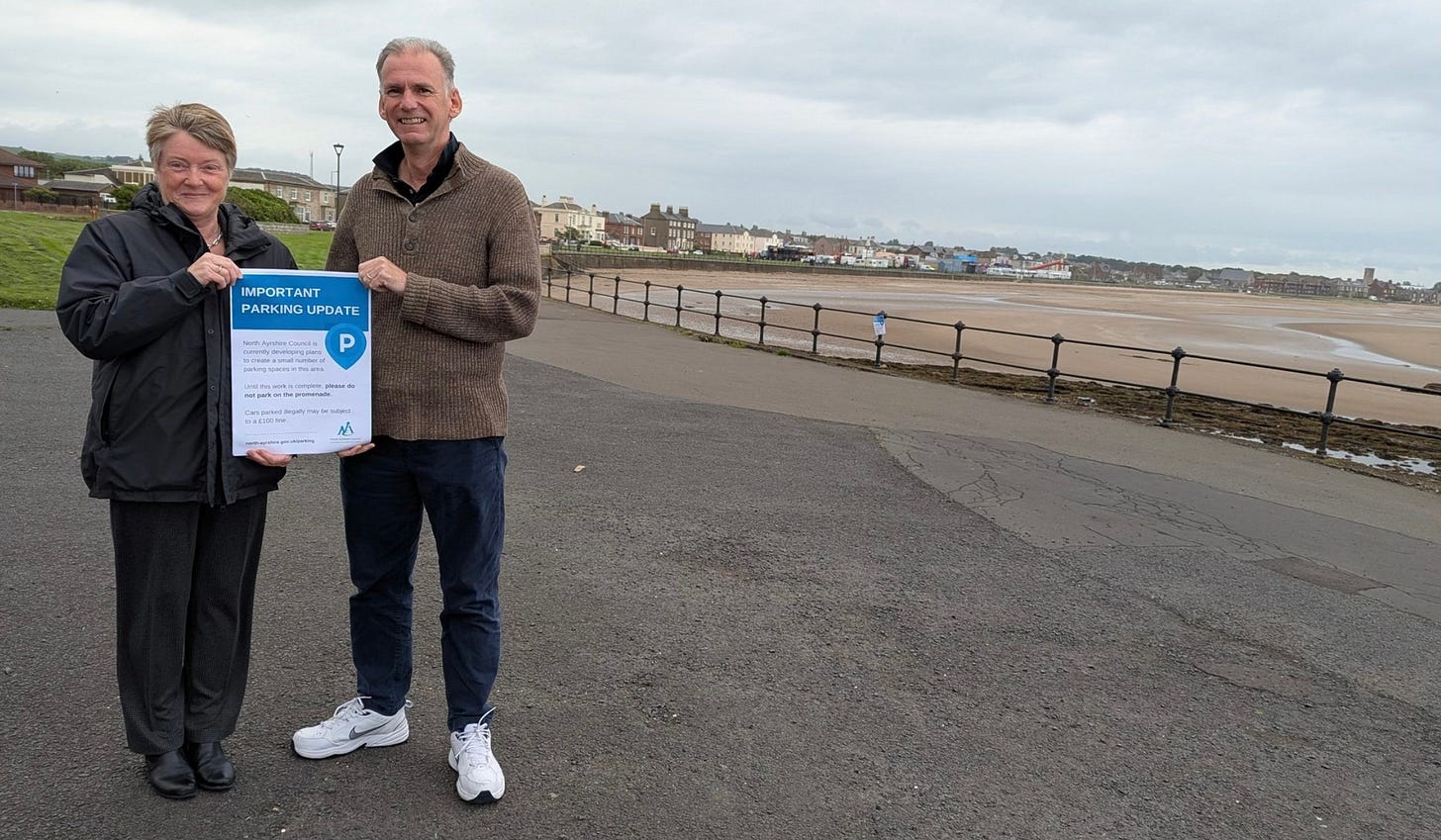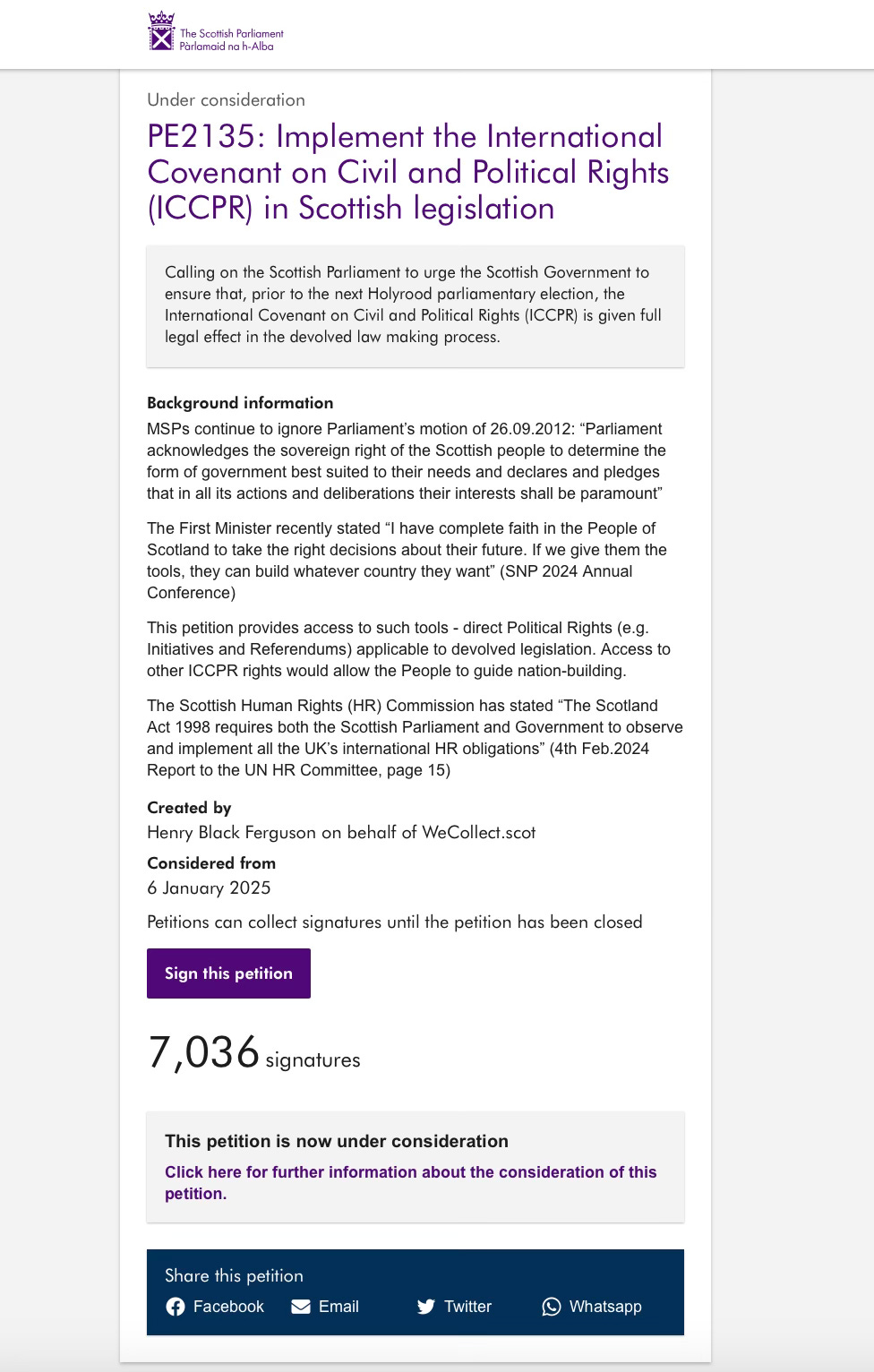Paddy McCarthy, a member of the Garnock Valley Unit of the Direct Democracy Federation (DDF), a group of residents who want more control over local and national issues through a system of Decentralised Direct Democracy, told me about the Ardrossan DDF Unit’s recent small victory over the North Ayrshire Council (NAC) and its pavement parking ban.
The ban impacted a community parking area on the Ardrossan harbour that local residents have used for 50 years when visiting the beach and sea front.
Following local protests, the NAC backed down.
This ‘win’ may seem like small potatoes. Except that councils routinely ignore local interests and concerns so even this small win is significant. That’s because Scotland has no democratic mechanisms in place with which to hold our elected representatives to account. The only ‘democracy’ we have is voting every four or five years after which our representatives ignore us until the next election rolls around.
Imagine if the People had the power to launch referendums on proposed legislation and suggest new laws via popular initiatives. The quality of legislation would improve dramatically if politicians knew the People could stop bad bills with a referendum. They would more readily listen to and heed our concerns because We the People would have the tools to hold them to account.
Scotland’s political system of ‘representative democracy,’ where parliament and local/regional councils make decisions on the people’s behalf, is based on the English constitutional principle of parliamentary sovereignty. But Scotland’s constitutional principle is Popular Sovereignty, meaning the People are sovereign over any government or parliament.
Representative democracy isn’t compatible with Popular Sovereignty. The only political system that is compatible is Decentralised Direct Democracy, where power is devolved to the People.
Here’s Paddy’s story.
Why decentralised direct democracy matters
In June, the Direct Democracy Federation Ardrossan Group joined with local campaigners to save a vital community parking space on the Ardrossan harbour front. This unofficial parking space that had been used for 50 years suddenly became a no parking area under North Ayrshire Council’s (NAC) ban on pavement parking.
Locals and visitors who had been using the space for half a century suddenly were slapped with fines of £100! The loss of the space meant that visitors began parking in front of residents' homes. And disabled people visiting a newly opened local charity cafe for vulnerable community members couldn’t find parking.
Thanks to a campaign by local groups and the Direct Democracy Federation Unit, NAC have decided to allocate designated parking in the space, a win for decentralised democracy by the local community.
Councillor Tony Gurney, NAC’s Cabinet Member for Green Environment and Economy, said:
The Council has listened to the feedback received and recognises that this site has been used historically for people visiting the beach and promenade at Ardrossan. I’m delighted to confirm that the area will now be adapted to create a small number of lined car parking spaces with barriers to ensure a clear divide between the pedestrian area and the parking area. I would like to thank all those who have raised this issue and hope that the plans currently being developed will help provide a long-term solution to this issue.
So, why did this need to happen in the first place? If Scotland had a system of Decentralised Direct Democracy, we could not only solve local issues like this one, but far bigger ones. For example, we could hold a referendum to make Scotland nuclear-free, to take back our ports from profiteering companies like the Peel Group, and to force SSEN to bury its unsightly pylons and not deface our countryside.
We could begin the journey towards Direct Democracy if the Scottish Parliament incorporated the UN International Covenant on Civil and Political Rights (ICCPR) into Scots Law. That’s what Petition PE2135, which has over 7,000 signatures, is asking for.
We the Sovereign Scottish People deserve a system of governance that allows us to exercise our sovereignty. The Scottish Parliament has the powers under the Scotland Act 1998 to incorporate ICCPR into Scots Law.
Last year, First Minister Swinney said:
I have complete faith in the people of Scotland to take the right decisions about their future. If we give them the tools, they can build whatever country they want.
Then give us the tools, First Minister.
We know that Westminster will do everything in its power to deny us our direct political rights and our right to self-determination, both of which are in the ICCPR. We can’t and won’t allow Holyrood to deny them to us, as well.
Become part of Scotland’s Direct Democracy movement so that together we can build a more democratic, fair and prosperous nation.
For more information about Direct Democracy and to become involved, go to respectscottishsovereignty.scot.
Paddy McCarthy
North Ayrshire Convener, Direct Democracy Federation








Decentralised Direct Democracy, where power is devolved to the People. Concepts such as this are sometimes hard to understand and visualise in action. For me, at any rate. But, Leah, you’ve provided an example (however small) of the benefit and success of such an approach. And, of course, further areas where this can benefit The People of Scotland. If we (the people) had the means and authority to do it.
Your move, Mr Swinney. Sadly I’m not holding my breath.
Excellent article.
To be clear this change has been in the works since January when I was contacted by a constituent.
The organisation named in your piece were very successful in getting publicity but were not involved at all in the change, despite what is claimed. In fact I wonder why they chose only to contact the local paper and not their local representative.
This was indeed a victory for local democracy but the traditional kind, where someone contacts a local councillor who effects change.